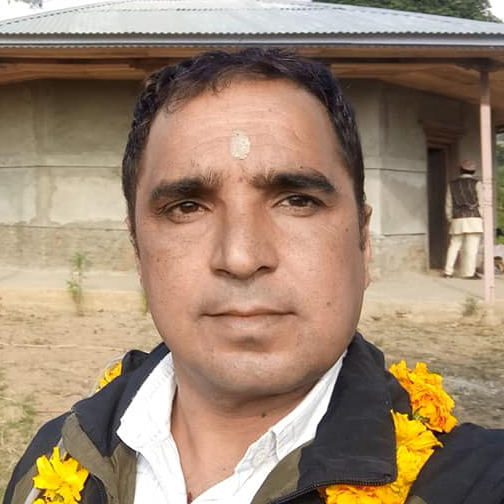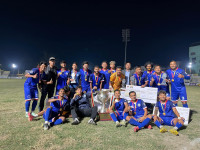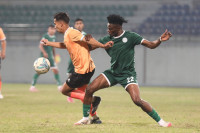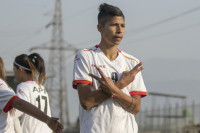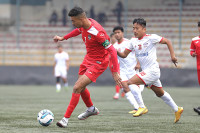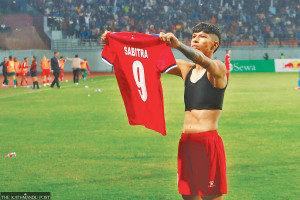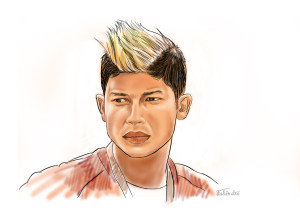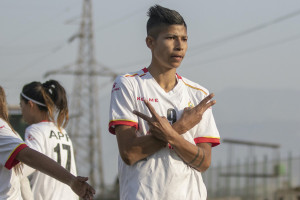Football
Ranjana Suruchi: From a tea estate to the national football team
From humble beginnings in Fikkal, Suruchi went on to represent Nepali football on numerous occasions.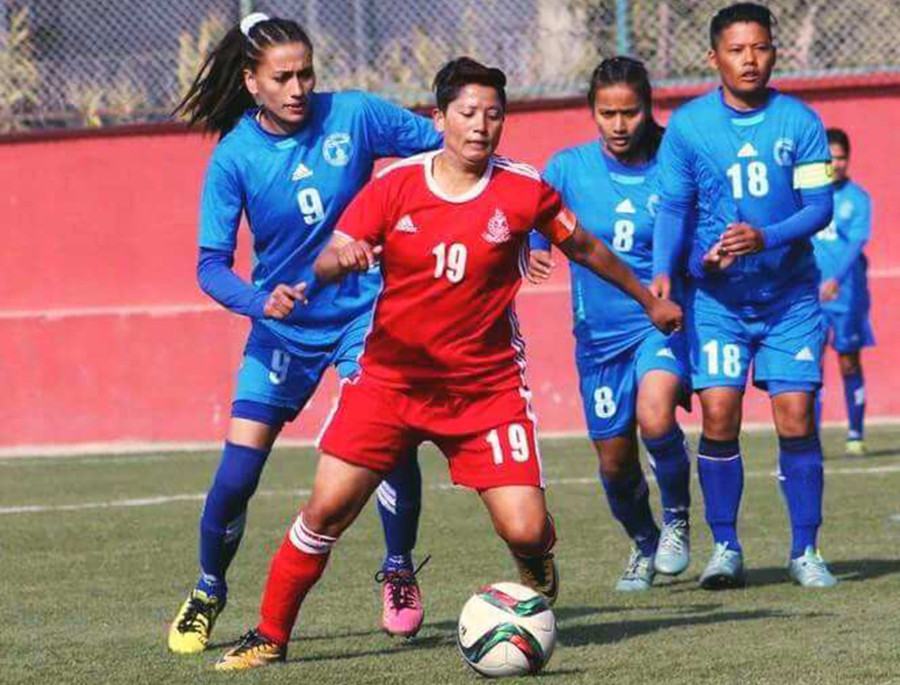
Biplav Bhattarai
Ranjana Suruchi (Darji) was only 10-years-old when her father passed away. Her mother worked on a tea plantation in Darjeeling, plucking tea leaves to make ends meet. The tea garden was approximately 20 kilometres away from their village in Fikkal, but Suruchi had few other alternatives than to join her mother in the tea plantation in her school years.
Suruchi started playing football at the age of 12. But where she grew up, everyone still looked at a girl playing football with raised eyebrows. There were very few who would support her in the game, and her dream of playing football for the national team. There was a small ground near her home, where she would kick the ball around.
“It was very tough to play football as there were no girls around to play with. I had to mingle with the boys to play a game,” said the 29-year-old footballer.
One of the few people who supported her to play football was her mother.
“I still remember my mother making a 5kg sandbag for me. I used to carry that sandbag and run early in the morning,” Suruchi recalled. But despite playing and training regularly, she found it difficult to lift her game to the level she wanted to. As there were no competitive events for girls, she was running out of patience.
She saw a glimmer of hope when she turned 15, as she learned about a women's football tournament at Pandam in Fikkal. She joined a team led by Kala Rai of Antu for the tournament. Her team went on to win that tournament and more satisfyingly, she collected the best player award.
“It was then that I realised I had a future in football,” she said.
That tournament in Fikkal was exactly the kind of breakthrough she needed. Soon, she started to take part in more district-level games. She left such a mark on her opponents that the teams she played against in her hometown saw her as a menace. But unbeknownst to her, the district football coach, Darshan Bhaktaraj, was observing her progress and he included Suruchi in his team, deploying her as a striker. When the dates for the 10th National Women’s Football Tournament were finalised, Suruchi doubled her efforts to prepare herself for the event. The women’s national football would eventually become a springboard for her rise to the top.
Despite the likes of more established teams from Rautahat, Kathmandu and departmental teams, Suruchi’s Ilam team made it to the finals where they eventually lost to Armed Police Force 6-0. The APF team had national team stalwarts like Anu Lama, Jamuna Gurung, Chandra Rai and Pramila Rai in their ranks. Ilam failed to win but Suruchi made her mark with a brilliant performance.
Suruchi’s Eastern Region again lost 4-0 to APF during the 5th National Games in Kathmandu in 2009. It was after that tournament that Suruchi began receiving offers to play for departmental teams. With an employment opportunity on the table, she signed a contract with the APF team.
“I had never thought that a girl plucking tea leaves in Darjeeling would one day play for the APF club,” Suruchi said.
But bigger things were yet to come, with Suruchi finally getting a national team breakthrough in the 2010 South Asian Games. Remarkably, even before she could represent her club, she played in the regional football meet. On February 2, 2010, Suruchi donned the national jersey for the first time against Sri Lanka, when she entered the ground as a substitute for Anu Lama.
“We already had a comfortable lead by the time I entered the ground. So I wasn’t nervous,” she said of the game that Nepal won 8-1. She soon scored her first goal for the country in the third group game against Pakistan, which they won 7-0. Nepal eventually finished the tournament as runners-up to winners India.
Suruchi then took part in the 2nd SAFF Women’s Championship in 2012. She missed out on the third and fourth edition, but made her way back into the national fold after six years for the 2020 AFC Women’s Olympic, qualifying for the first round tournament in November last year but she did not make into the playing XI. Suruchu still calls it a memorable moment but regrets missing out on the SAFF Championship in the third and fourth edition.
Suruchi started her career as a striker but now plays as a defender for the APF club. She also had a debut to remember as a captain, steering the APF to the 16th National Women’s Football Championship title two years earlier. She led the club to a 3-1 win over hosts Hong Kong in February last year. Having spent eight years as an APF player, Suruchi echoes the view of most women footballers.
“Women’s football has made huge strides forward but opportunities still remain limited for us,” she said.
***
What do you think?
Dear reader, we’d like to hear from you. We regularly publish letters to the editor on contemporary issues or direct responses to something the Post has recently published. Please send your letters to [email protected] with "Letter to the Editor" in the subject line. Please include your name, location, and a contact address so one of our editors can reach out to you.




 9.83°C Kathmandu
9.83°C Kathmandu